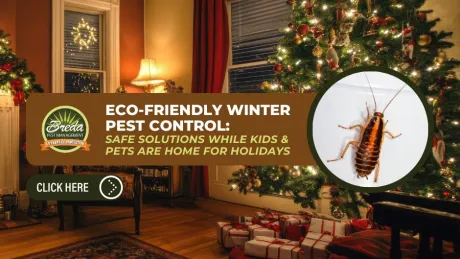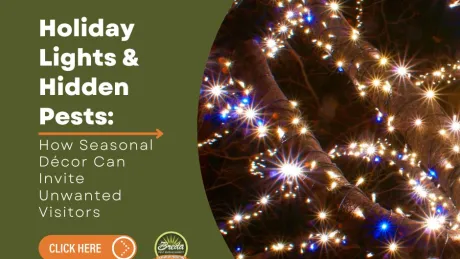The best way to deal with unwanted wildlife is by preventing them from entering the home in the first place. But once they're in it's important to approach the situation safely, and calmly. If you're dealing with a pest problem, here are a few common mistakes to avoid when getting wildlife out of your home.
1) Panic
If you find wildlife in your home don't worry. Remember that while pests are technically invading your home, they're only looking for warmth, shelter, and somewhere to raise young. Chances are high that they've wandered in by accident and are more afraid of you than you are of them.
If you encounter an animal in your home, don't panic. They might already be trying to escape, so do your best to simply help them find their way out.
2) Try to "scare" them out
If an animal is backed into a corner and it feels threatened, it will go into a fight-or-flight response. This means that it will make a run for it and try to escape, or attack the person or animal making it feel cornered, which could be you.
It's never a smart idea to directly confront a cornered animal that you've found in your house. Beyond the possibility of injury, you'll also be risking infection to any of the diseases or bacteria that the animal is hosting.
If you can keep your distance however, there are a number of devices that can scare away pests by emitting irritating noises or visuals. Just remember that animals can become accustomed to these, and they may come back later if they no longer feel threatened.
3) Touch them
Avoid any physical contact with any wild animals in your home if at all possible. They can carry rabies, parasites, and all manner of other things you don't want. If you absolutely have to carry something out by hand, use long, thick gloves.
4) Confuse different types of pesticides, poisons, and repellents
Never use outdoor pesticides inside your home. These chemicals are toxic and can be very dangerous to children and pets. Make sure any poisons or repellents you have are all clearly labeled as such, and only use them according to the instructions.
5) Overuse pesticides
Every pesticide comes with a set of instructions and dosage rates. Don't make the mistake of thinking, "If I use twice as much, I'll kill twice as many." When you use too much, or use it all over instead of only in targeted areas, you can cause damage to your home and to the people living inside it.
6) Ignore the unkempt plants outside.
It's useless to kill a pest if you ignore where it came from. Wild animals love the overgrown grass, overhanging tree limbs, messy hedges, and vines outside your home because these access points make it easier for them to get in.
They can also serve as protection against predators, making them an attractive spot for wildlife looking to get inside, so make sure to keep them well-trimmed.
7) Overlook cracks and holes
Mice can enter your home through a hole the size of a dime, and rats can enter holes the size of a quarter (MPS), and once they're in they can be tough to get out. Inspect your home thoroughly for any holes in walls, lining, or roofing, as even a single hole can lead to big headaches later on.
8) Go to the nuclear option right away
Bug Bombing your home can be useful for dire situations, but it's not a one-size-fits-all solution for every pest problem. It can be tempting, especially if your home is plagued by fleas, to use a bug bomb, but they're not always as effective as advertised.
Worse, there a number of terrible health and environmental concerns that come along with bug bombing that could have lasting effects on your home and family. Consult with an expert before making the decision.
9) Let your trash pile up
As with overgrown plants, every loose piece of trash around your home or in your yard can serve as a hiding place or nesting grounds for pests. By keeping your home clean, you'll be giving any potential pests fewer safe spots.
10) Wait and see
If you think you're experiencing a pest problem but aren't certain, waiting it out is one of the worst decisions you can make. If you see a pest in your home, it a likely indicator of a severe infestation, and the longer you wait to fight it, the worse the damage will be. Start talking to a pest control specialist as soon as possible.
11) Deal with it by yourself
Like any severe problem, it's always better to contact an expert than to try to go it alone. A professional pest control specialist will be able to tell you exactly what your problem is and where pests might be getting into your home. A professional will also be able to start early repairs on some of the damage, stopping the problem at its source and saving you money in the long-term.
Learn more about how to efficiently prevent and deal with a widlife infestation in our free guide: The Ultimate Guide To Wildlife Infestation.
If you find yourself needing pest control services, don't hesitate to contact us today!



